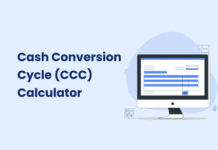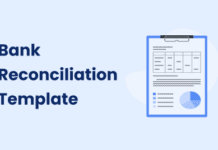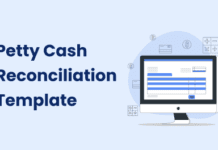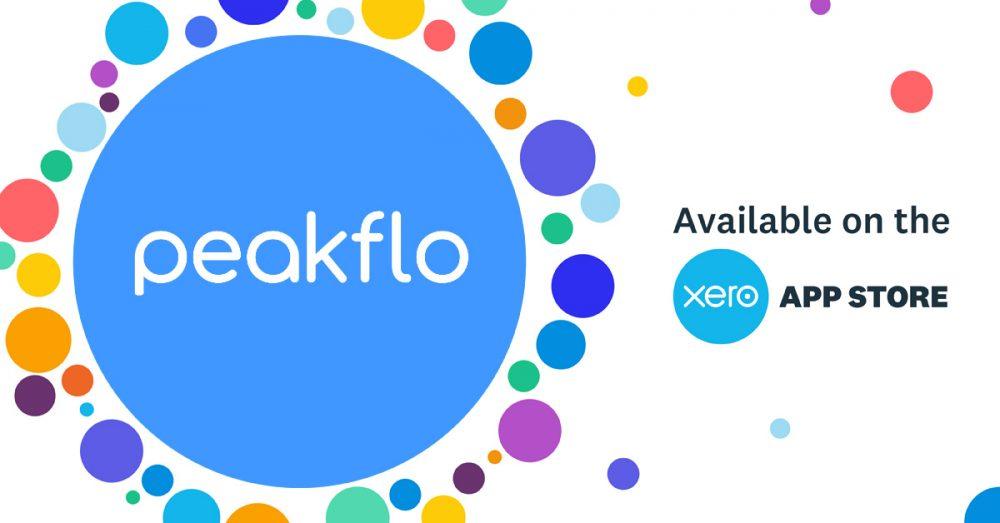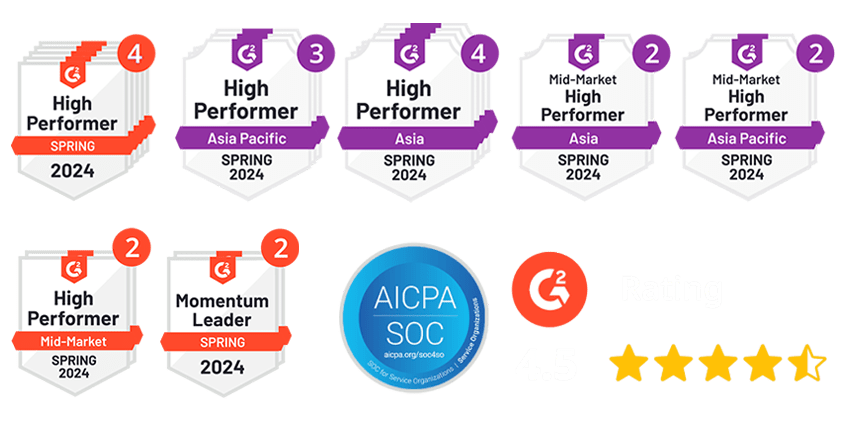Cold calling remains one of the most challenging aspects of real estate prospecting. Real estate professionals spend countless hours making calls with unpredictable results, often struggling to connect with qualified prospects who are increasingly difficult to reach through traditional methods.
The numbers tell a compelling story. Almost four out of ten homebuyers turn to the internet to look up properties on sale – that’s twice as many clients contacting a real estate agent directly! This shift creates both a challenge and an opportunity for agents who need better ways to connect with these digital-first prospects.
AI cold calling in real estate addresses this challenge head-on, turning online browsing behavior into qualified leads through intelligent prospecting systems. Agents using AI technology experience 30% higher lead conversion rates with minimal effort. Companies using AI-driven outreach campaigns report 40% higher lead conversion rates than traditional manual prospecting, while also reducing time spent on unqualified leads by 50%.
The difference lies in how AI-driven prospecting software intelligently ranks leads and schedules timely follow-ups using engagement data. Rather than making endless calls with uncertain outcomes, agents can now focus their efforts where they’re most likely to succeed.
What can you expect from implementing AI cold calling? The right system can boost call effectiveness by 60% through smarter lead targeting. Automated follow-ups can improve your conversions by up to 9 times, freeing you to focus on closing deals rather than chasing unqualified prospects.
Understanding how to implement conversational AI in your real estate business requires a systematic approach. This guide will walk you through setting up a virtual assistant for real estate cold calling and creating more effective real estate cold call strategies that deliver measurable results. We’ll cover everything from selecting the right AI tools to launching your first campaign and optimizing for long-term success.
Why AI Cold Calling is Changing Real Estate
Real estate prospecting has always involved cold calling, but the approach is changing rapidly. Traditional methods that relied on manual dialing and scripted conversations are giving way to sophisticated AI systems that can handle complex interactions with potential clients.
The rise of conversational AI in real estate
Cold calling in real estate has moved far beyond basic automated dialers. Modern AI cold calling systems use machine learning, natural language processing, and voice synthesis to create interactions that sound remarkably natural. These systems can understand context, respond to specific questions, and handle common objections without human intervention.
What sets today’s AI apart from earlier automated systems is its ability to learn and adapt. These tools analyze successful sales calls to identify patterns and improve their approach with each interaction. Unlike rigid robocalls that follow predetermined scripts, current AI systems can adjust their conversation based on how prospects respond.
Benefits for agents and brokerages
The practical advantages of AI cold calling are substantial and measurable. Time efficiency represents the most immediate benefit – AI systems can make hundreds of calls simultaneously. Agents using AI-powered cold calling experience up to 60% more effective calls through smarter lead targeting. Automated follow-ups can improve conversions by up to 9 times compared to manual approaches.
Cost considerations make AI particularly attractive for real estate businesses. AI solutions typically cost significantly less than maintaining a human calling team. These systems operate continuously across all time zones, maintaining the same energy and consistency on the hundredth call as on the first.
The consistency factor addresses a real challenge in traditional cold calling. Human agents often struggle with rejection fatigue, and 63% of salespeople consider cold calling the worst part of their job. AI systems eliminate this emotional barrier entirely.
Common myths and misconceptions
Several misconceptions persist about AI calling technology. Many people assume these systems are simply advanced chatbots, but AI agents operate differently from basic bots. While bots typically retrieve information and follow scripts, AI agents can take actions, make decisions, and learn from interactions. They process large amounts of data to determine the best approach for each prospect.
Another common belief is that AI cold calling won’t produce meaningful business results. The evidence suggests otherwise. Companies implementing AI agents report resolving up to 40% more support cases than traditional approaches. The market validation shows the AI agents market is projected to grow from $5.10 billion currently to $47.00 billion by 2030.
Understanding these realities helps real estate professionals make informed decisions about implementing AI calling systems in their businesses.
Key Features to Look for in AI Tools
Selecting the right AI cold calling solution requires understanding which features deliver the greatest impact for your real estate business. The effectiveness of your AI cold calling real estate strategy depends largely on the capabilities of your chosen platform.
Not all AI calling tools are created equal. Some focus primarily on automation, while others emphasize conversation quality or data integration. Understanding these distinctions helps you choose a solution that aligns with your specific business needs and growth objectives.
1. Automated lead qualification
Manual lead screening consumes hours of valuable time that could be spent closing deals. AI algorithms efficiently analyze customer data to identify leads most likely to convert, saving countless hours previously spent on manual screening. These systems rank and prioritize prospects using browsing history and past interactions.
Advanced AI tools can even automatically qualify leads through pre-screening questions, instantly filtering out unqualified prospects based on budget, location, and purchase intent. This pre-qualification process ensures agents focus exclusively on high-potential opportunities, dramatically improving conversion rates.
Why this matters: Rather than calling every lead in your database, you can concentrate efforts on prospects who meet your specific criteria, making your time investment more strategic and productive.
2. Real-time speech recognition and NLP
The foundation of effective conversational AI in real estate lies in sophisticated speech recognition and natural language processing (NLP) technologies. These capabilities enable AI systems to understand and respond to natural speech patterns, creating more engaging and authentic interactions.
Advanced NLP allows virtual assistants in real estate cold calling to provide real-time responses to customer inquiries, reducing wait times and increasing satisfaction. These technologies work together to create fluid, human-like conversations rather than robotic interactions.
Modern NLP systems can detect emotional cues, understand context, and adapt conversation flow based on prospect responses. This creates a more natural experience that builds rapport with potential clients.
3. CRM and calendar integration
Seamless integration with existing systems creates a frictionless workflow that eliminates duplicate data entry. Top-tier AI cold calling platforms automatically record call outcomes in CRM systems and trigger appropriate follow-up actions.
This integration ensures real-time data synchronization, allowing agents to access lead history, track outcomes, and update prospect records without manual input. Beyond basic connectivity, sophisticated systems automatically schedule follow-ups and meetings, eliminating the administrative burden of appointment coordination.
Key integration capabilities include:
- Automatic call logging and outcome recording
- Lead scoring updates based on conversation quality
- Triggered email sequences for nurturing prospects
- Calendar synchronization for appointment scheduling
4. Multilingual support for diverse markets
Real estate markets increasingly serve diverse populations with varying language preferences. Leading AI cold calling platforms offer support in multiple languages, enabling seamless communication with international buyers, foreign investors, and diverse local communities.
This feature expands market reach, builds trust with non-native speakers, and enhances the overall client experience. Some advanced solutions support over 30 languages for both inbound and outbound calls, making them ideal for real estate businesses serving culturally diverse regions.
Multilingual capabilities become particularly valuable for agents working in metropolitan areas, resort destinations, or markets with significant international investment activity.
Step-by-Step: Starting Your First AI Campaign
Getting started with AI cold calling in real estate can seem overwhelming, but breaking it down into manageable steps makes the process straightforward. The key is methodical preparation that sets you up for success from day one.
1. Define your goals and target audience
What specific outcome do you want from your AI calling system? Start by determining whether you’re focusing on lead qualification, appointment setting, or property interest assessment. Clear objectives will shape your entire campaign. Without this foundation, even the most sophisticated AI system won’t deliver the results you expect.
Build a targeted contact list with relevant information about your prospects. Quality data enables more personalized conversations that resonate with potential clients. Focus on gathering details like property preferences, budget ranges, and preferred contact times. This information becomes the fuel that powers your AI system’s effectiveness.
2. Set up your AI phone call system
Once you’ve selected a suitable platform, configure your settings through the dashboard. Establish voice type preferences, optimal call times, and integrate with your existing CRM. The integration step is crucial – it ensures all call outcomes automatically update in your system, triggering appropriate follow-up actions without manual intervention.
Most platforms offer straightforward setup wizards that guide you through the process. Take time to customize settings based on your target audience’s preferences and your business’s operating hours.
3. Test and refine your real estate cold call script
Crafting an effective script requires balancing structure with flexibility. Conversational AI in real estate works best when scripts sound authentic and natural. Write in everyday language that avoids obvious sales terminology, include questions to engage prospects, and prepare responses for common objections. Your script should quickly establish relevance while maintaining a consultative tone.
Here’s a practical approach: Start with a brief introduction, ask an engaging question about their property needs, and listen to their response. The AI system can then adapt the conversation flow based on their answers.
4. Launch with a small batch of leads
Begin with a test batch of 20-50 calls to identify any issues before scaling up. Most virtual assistant real estate cold calling platforms feature user-friendly interfaces designed for non-technical users. This initial test phase is essential for fine-tuning your approach.
Monitor key metrics like call duration, response rates, and appointment bookings during this test phase. Analyze the data to understand what’s working and what needs adjustment. Once you’ve refined your approach based on these initial results, you can confidently scale up to larger call volumes.
Remember, successful AI cold calling campaigns aren’t built overnight. This methodical approach ensures you establish a solid foundation that can deliver consistent results as you grow.
Best Practices for Long-Term Success
Implementing AI cold calling technology marks just the beginning of your journey. Long-term success requires ongoing refinement and strategic adaptation to maximize returns on your investment.
1. Use data to improve call quality
Call data analysis reveals valuable insights for optimizing your approach. AI systems can track over 10,000 data points per hour to refine strategies, identifying patterns in successful conversations. Examine metrics like engagement levels, sentiment analysis, and conversion rates to continuously enhance scripts and targeting parameters.
Regular data review helps you understand which conversation approaches work best with different prospect types. This analysis allows you to refine your messaging, adjust timing strategies, and improve overall call effectiveness based on real performance data rather than assumptions.
2. Balance automation with human touch
Technology streamlines operations, but the human element remains irreplaceable for building genuine connections. Use AI for initial qualification while reserving your agents’ time for meaningful follow-up conversations. This approach has been shown to increase lead engagement by 30% in global markets.
Consider AI as your first line of prospect engagement, handling initial screening and basic qualification. Once prospects show genuine interest, transition them to your experienced agents who can provide personalized service and address complex questions that require human judgment and empathy.
3. Train your team to work with AI tools
Comprehensive training forms the foundation for successful AI adoption. Teams that implement robust change management during AI integration achieve 30-50% higher ROI figures. Establish clear protocols for how team members will interact with AI systems, particularly regarding lead follow-up responsibilities and qualification criteria.
Focus your training on practical scenarios your team will encounter daily. Show them how to interpret AI-generated lead scores, when to override AI recommendations, and how to use AI insights to personalize their follow-up conversations.
4. Stay updated with AI trends in real estate
AI calling technology continues evolving rapidly. Promising developments include hyper-personalization through public records integration, advancing emotional intelligence capabilities, and multimodal communication that seamlessly transitions between voice, text, and video based on prospect preferences.
Monitor industry developments to identify new features that could benefit your specific market. Subscribe to real estate technology publications and attend industry conferences to stay informed about emerging AI capabilities that could enhance your prospecting effectiveness.
How Peakflo AI Voice Agent Transforms Real Estate Prospecting
Peakflo AI Voice Agent is designed to take the heavy lifting out of real estate cold calling by combining automation with natural, human-like conversations. Instead of spending hours dialing numbers and chasing unqualified leads, agents can rely on Peakflo’s AI to qualify prospects, handle objections, and schedule appointments directly into their calendars. With real-time speech recognition, multilingual support, and seamless CRM integration, the system ensures no opportunity slips through the cracks.
What sets Peakflo apart is its ability to analyze call outcomes and continuously improve with every interaction, giving agents access to smarter targeting and better-qualified leads. Whether you’re engaging first-time buyers, investors, or sellers, Peakflo ensures your outreach is timely, relevant, and effective. By freeing up valuable time, agents can focus on what truly matters—closing deals and building relationships.
Ready to see how Peakflo AI Voice Agent can help you scale your real estate outreach? Book a call with our experts today and transform the way you prospect.
A Way Forward
AI cold calling tools can significantly improve how real estate professionals connect with prospects and manage their time. The technology addresses common challenges in traditional cold calling by providing smarter lead targeting, automated follow-ups, and consistent messaging across all interactions.
The data shows 60% more effective calls through smarter targeting and 9x improvement in conversion rates with automated follow-ups. These systems operate continuously, ensuring you never miss opportunities due to timing constraints.
Success with AI cold calling requires ongoing attention to performance data. Analyze call metrics like engagement levels, response rates, and conversion patterns to continuously refine your approach. Remember that while automation handles initial qualification and follow-up scheduling, the human element remains crucial for building genuine relationships with qualified prospects.
Your next step should be evaluating AI cold calling platforms that integrate with your existing CRM system. Look for solutions that offer the core features outlined in this guide, and consider starting with a pilot program to measure results before full implementation. This measured approach allows you to optimize your processes while minimizing risk and maximizing the return on your investment.
FAQs
Q1. What are the key benefits of using AI for cold calling in real estate?
AI cold calling can increase call effectiveness by up to 60% through smarter lead targeting, improve conversion rates by up to 9 times with automated follow-ups, and significantly reduce time spent on unqualified leads. It also operates 24/7 across time zones, maintaining consistent performance.
Q2. How does AI cold calling differ from traditional automated dialers?
Unlike basic automated dialers, AI cold calling systems use machine learning and natural language processing to create human-like interactions. They can understand context, respond to questions, and handle objections effectively, continuously improving through each interaction.
Q3. What features should I look for in an AI cold calling tool for real estate?
Key features include automated lead qualification, real-time speech recognition and natural language processing, seamless CRM and calendar integration, and multilingual support for diverse markets. These capabilities enhance efficiency and personalization in your cold calling efforts.
Q4. How do I start my first AI cold calling campaign in real estate?
Begin by defining clear goals and a target audience, then set up your AI phone call system with appropriate settings. Craft and refine a natural-sounding script, and start with a small batch of 20-50 test calls before scaling up. Analyze metrics to continuously improve your approach.
Q5. How can I ensure long-term success with AI cold calling in real estate?
For long-term success, regularly analyze call data to improve quality, balance automation with human touch for meaningful connections, thoroughly train your team to work with AI tools, and stay updated with the latest AI trends in real estate. This approach helps maximize your return on investment in AI technology.









![Why AI Sales Calls Are Making Good Sales Reps Even Better [2025 Guide] ai sales calls](https://cdn-kmjmp.nitrocdn.com/YvtqmrsiHUxqerlSiZgbfzqqTARWTElr/assets/images/optimized/rev-834053b/blog.peakflo.co/wp-content/uploads/2025/09/65168cf6-3001-4733-8cbc-12d5684cf449-218x150.webp)










